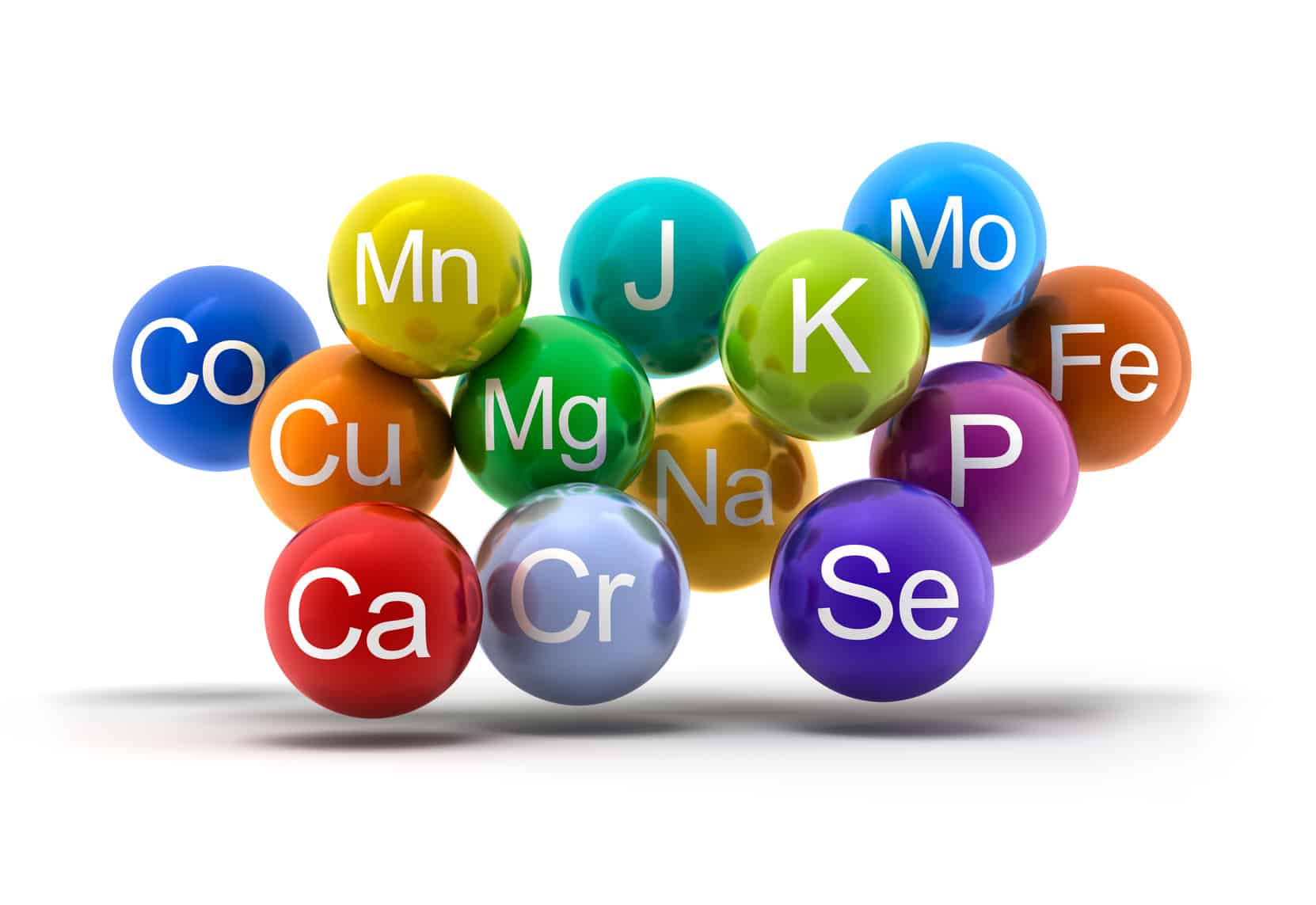Micronutrients – “nature’s little miracles”

What do we mean by micronutrients?
Nutrients enable the body to run smoothly through all metabolic processes and thus make a positive contribution to health. They enter our body through the food we eat. A distinction is made between macro- and micronutrients. Macronutrients such as proteins, carbohydrates, and fats act as energy suppliers for our body. Micronutrients do not serve as energy suppliers, but are of essential importance with regard to growth and energy production, for example. Micronutrients, also called vital substances, include vitamins, trace elements (e.g., iron, iodine), minerals (e.g., calcium, magnesium), amino acids, secondary plant substances (e.g., carotenoids, flavonoids) and also fatty acids (e.g., palmitic and linolenic acid).
Importance of the micronutrients
The exact tasks of the individual micronutrients are diverse and range from supporting many enzyme reactions, to components for e.g., enzymes, hormones and bones, helpers in electrolysis, to protection due to antioxidant effects. One of the most important tasks is the maintenance of DNA. A deficiency of certain micronutrients has the consequence that defects in the DNA are not repaired and thus the pre-damaged DNA is even more susceptible to genotoxins (UV light, chemicals etc.). In summary, a deficit has drastic consequences for our body, as many vital processes depend on it. Defective DNA can increase the risk of cancer and accelerate the skin ageing process.
Effect of micronutrients on the skin
Some micronutrients specifically for the skin and its effect have been listed below. Many skin problems such as blemished and oily skin are due to a deficiency of certain vital substances.
Vitamins:
Micronutrients such as vitamin A have a cell-generating effect, and its derivatives (derivatives) even inhibit collagen degradation. Vitamin C helps to promote collagen formation and protects against UV light as an antioxidant, as do vitamin E and vitamin D, which also contribute to cell generation. The B vitamins have an anti-inflammatory effect like vitamin B3 and act as moisturisers like vitamin B5. Biotin (vitamin B7), also known as the beauty vitamin, contributes to skin growth. Likewise, provitamin A (beta-carotene) inhibits skin ageing and also serves as UV protection.
Minerals:
Calcium and magnesium are of great importance for skin growth. In addition, sulphur supports wound healing through its antiseptic and anti-inflammatory effect.
Trace elements:
A very significant trace element is iron, as it is involved in the production of red blood cells and the transport of oxygen. Without iron, the skin looks lifeless and pale. Selenium also serves as UV protection for our skin.
Fatty acids:
Fatty acids such as palmitic acid and linolenic acid not only nourish dry skin with moisture, but also contribute to its regeneration.
Outlook of micronutrients in cosmetics
Not only people who live a vegetarian or even vegan lifestyle possibly have deficiencies in micronutrients, also a balanced diet with fruits, vegetables, meat, eggs, and milk products can be insufficient, because time spent in the fresh air and sun also has an impact on our micronutrient balance. In addition, many micronutrients in food are lost until they can develop their effect in our body, e.g., through preservation or cooking. Alcohol consumption, smoking and stress also contribute significantly to deficiencies. Since micronutrients are so indispensable for us humans, they are also used in cosmetics, both internally as dietary supplements and externally as ingredients in creams, for example. Sun creams contain antioxidant micronutrients such as vitamins for protection, body lotions contain fatty acids as moisturisers and pimple creams contain minerals and trace elements to dry out pimples while caring for the skin. Micronutrients are also used in cosmetics for hair and nails, for example. They ensure less hair loss, less brittle nails, and more shine. In order to achieve positive results, the dose should be exactly adjusted to the respective person, at least with regard to food supplements.
Summary Micronutrients
“Micronutrients are small but of great importance to us. When dosed correctly, they are the components of life and the key to good physical well-being.”
Literature:
The Role of Astaxanthin as a Nutraceutical in Health and Age-Related Conditions.
Bjørklund G, Gasmi A, Lenchyk L, Shanaida M, Zafar S, Mujawdiya PK, Lysiuk R, Antonyak H, Noor S, Akram M, Smetanina K, Piscopo S, Upyr T, Peana M.Molecules. 2022 Oct 23;27(21):716799
Micronutrients and the Risk of Allergic Diseases in School Children.
Podlecka D, Jerzyńska J, Sanad K, Polańska K, Bobrowska-Korzeniowska M, Stelmach I, Brzozowska A.Int J Environ Res Public Health. 2022 Sep 26;19(19):12187
The Role of Vitamin E in Thermal Burn Injuries, Infection, and Sepsis: A Review.
Thompson MA, Zuniga K, Sousse L, Christy R, Gurney CJ.J Burn Care Res. 2022 Nov 2;43(6):1260-1270
Arvanagh FM, Masoumabad AB, Yangjeh AH, Bayrami M, Feizpoor S, Nourani MR, Taheri RA.J Wound Care. 2023 Jan 2;32(1):44-54
Effectiveness of zinc therapy for the treatment of pressure ulcers.
Chica JC, Hill JE.Br J Community Nurs. 2023 Sep 1;28(Sup9):S32-S36